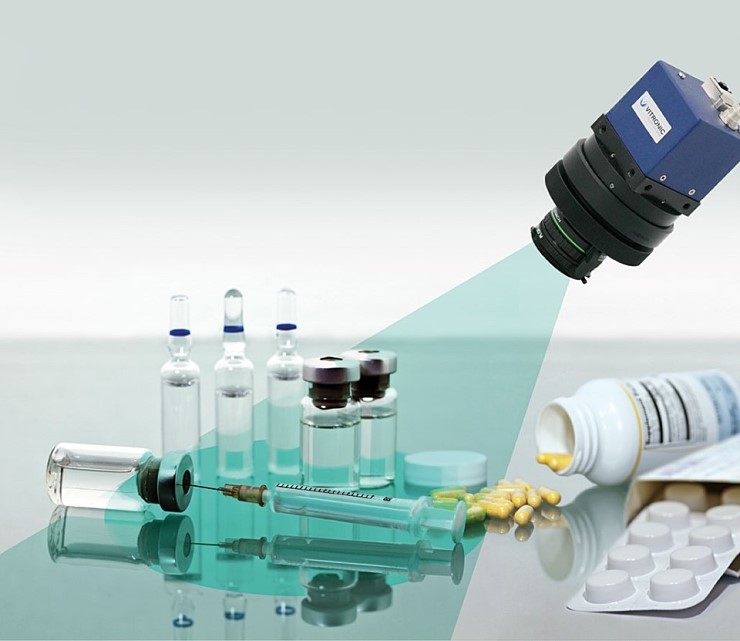 |
| ▲ The Chinese government had promised a thorough inspection of medical production and distribution. (Photo from Vitronic) |
A medical scandal greeted the start of the Year of the Pig in China. On the 5th of February 2019, the first day of the Lunar New Year, China’s National Health Commission issued a statement to hospitals that a batch of intravenous immunoglobulin (IVIg) was suspected to have been contaminated with Human Immunodeficiency Virus (HIV), a virus that causes AIDS. The plasma had been tested positive for the HIV antibody according to a provincial commission and the national health authorities sent teams to do further tests. According to the South China Morning Post, the faulty batch comprised of 12,229 50ml bottles of plasma due to expire in June 2021. The products involved have been sealed and medical institutions nationwide have been asked to stop using them while the investigation continues.
IVIg is used to help people who have weakened immune systems, whether from an autoimmune condition like lupus or as a side effect of receiving bone marrow transplants. The product is made by collecting immunoglobulin from donated blood plasma where donors are generally strictly screened for diseases. The faulty IVIg batch in question was produced by Shanghai Xinxing, which is owned by China’s pharmaceutical giant Meheco Group, China’s second-biggest medical blood products manufacturer. One anonymous Shanghai doctor cited in Chinese media that patients who received a tainted IVIg infusion might not contract HIV because IVIg includes an anti-virus treatment. So far, there have been no reported cases of any patients having been infected from the IVIg, according to a newspaper website for the South China Morning Post. On Wednesday, a day after the original warning was issued, Chinese authorities tried to reassure the public by announcing that further tests on a batch of the products in question have come up negative. A statement from the National Medical Products Administration said tests for HIV, hepatitis B, and hepatitis C all turned out negative. It was also confirmed that no imports of this batch of IVIg made it into Korea.
This medical scandal is not the first major medical accident to occur in China. Last year, the Chinese government was left dealing with a multitude of scandals relating to vaccinations for measles, chickenpox, and rabies that were made under Chinese government authority. In July, the entire Chinese territory was shocked to learn that vaccinations made by state enterprises were defective. Chinese media, Boshin(博迅) criticized the government stating this problem has been on-going for more 10 years and it is not being solved because of a lack of control by the governing administration. The vaccinations revealed as poor quality were all made by state-owned enterprises. There are 40 companies in China producing these vaccines and among them, 18 companies have reportedly had problems with quality. While these problems are serious, the more urgent issue at hand is the corruption of its civil servants. The purchase of vaccinations for each region is down to each Center for Disease Control and Prevention Centre (CDC) in China. And more serious problem was, public officers’ uncareful passing of vaccinations during the contracting process that should never be accepted because of their terrible quality. However, manufacturers bribe government authorities to pass them. After it was revealed that the Chinese made vaccines were ineffective, many parents decided to go abroad to Hong Kong or America to vaccinate their children. The general population was enraged and made their voices heard, calling on the government to guarantee their right to live healthy lives.
 |
| ▲ The Chinese government said it would conduct a drug test. (Photo from Forbes) |
These were not the first instances of faulty vaccines. On July 15, 2018, about 359,000 children were given the DPT and rabies vaccine. However, a Chinese authority's investigation found that the vaccines would not work. The company that caused the incident was Changseong Bio(长生生物), the fourth largest vaccine manufacturer in China. As a result, the company's executives were arrested and a policy of crisis management was instituted. This led to more distrust between Chinese citizens and local drug companies. This also resulted in the government leaving the country in search of better medicinal solutions. Despite the frequency of problems, it is clear that the Chinese government is ready to take strong measures whenever there are concerns with locally produced medical products.
The case of the tainted IVIg was also dealt with quickly by Chinese authorities. After the positive test for HIV by the health authorities in Jiangxi Province, the Shanghai Drug Supervision Administration ordered an immediate suspension of all controversial injections and instituted a plan for recall measures. Furthermore, the Supervision Administration strengthened the monitoring of patients who have already been injected. Currently, the Department of National Health of the People’s Republic of China stated that even though injections have been performed, there hasn’t been a reported case of infection. They also stated that even if people were already injected, their chances of contracting HIV were extremely low. However, the National Hygiene and Health Commission has not yet revealed how many patients were injected with tainted blood products. Furthermore, the Chinese government has deleted comments and social media postings from those who mentioned the incident, further amplifying public anxiety.
After the ineffective rabies vaccine accident, the Chinese government promised a more thorough inspection of medical products and their distribution process, yet the problems with locally produced products persist, not just in private enterprises, but also in state-run enterprises and therefore, public distrust is growing. The main reason for these constant medical accidents is that Chinese pharmaceutical companies are too focused on producing competitive cheap products for the market. To reduce production and distribution cost, enterprises produce substandard products and bribe inspectors for their silence. Also, safety inspections based on paper evidence only, make it even easier to falsify results and in order to pass the required standard. Medication is directly connected to the health and wellbeing of the public and it should work as a treatment, not a threat. The Chinese government needs a more transparent medication manufacturing system and stronger regulations for inspection in order to regain the public’s trust.
김동은, 한혜원, 박근후, Tsai Ming Hsuan dankookherald@gmail.com

![[Campus Magnifier] Let's Surf the Library!](/news/photo/202404/12496_1765_4143.jpg) [Campus Magnifier] Let's Surf the Library!
[Campus Magnifier] Let's Surf the Library!
![[Campus Magnifier] Let's Surf the Library!](/news/thumbnail/202404/12496_1765_4143_v150.jpg)





